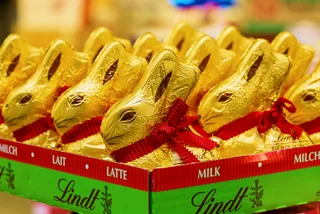This is an update of a 2018 article.
The food truck and design market scene in Prague is booming. And while the COVID-19 pandemic has slowed down the capital’s lively social scene, industrious expats are still looking for ways to generate extra funds whether its by launching a pick-up food service or creating or selling all those crafts you made while staying at home.
PARTNER ARTICLE
Here’s how to go about legally starting a pop-up biz in Prague:
Sell your homemade creations
Whether you want to peddle beadwork or brownies, the first thing you need, she says, is a license to sell.
Terezie Tunková is the founder and creative director of Dyzajn Market, the biggest selling event in the Czech Republic featuring independent Czech and international artisans.
“All vendors must be authorized to sell in the Czech Republic or abroad in order to participate in Dyzajn Market,” says Tunková, referring to a trade license, or Živnostenský list in Czech.
Your trade license should be specified for Volné živnosti (free trade) which permits a myriad of business activities related to crafting, everything from textiles and accessories to paper goods.
This kind of diversification isn’t a bad idea given the constantly evolving nature of the business, says Tunková.
“Right now the bestsellers at Dyzajn Market are jewelry and clothing,” she says adding that recently there has been a huge influx of newcomers applying to markets as well as newly emerging design events.
Tunková selects vendors based on quality and originality of concept. She advises artists to assess their products with a critical eye before submitting an application. High-quality photos and a strong social media presence are key: “Designers must create a strong story, one that’s worth telling, to interest customers.”
Go the Food Truck or Festival Route
If you prefer to establish your trade in home-cooking, not handicrafts, you’ll find ample opportunities on Prague’s booming food scene.
Russian-born and Prague-raised Asya Meytuv (a.k.a. Hummus Princess) learned to make hummus while studying in Israel. She began selling her smooth and savory chickpea spread in 2016 as a stay-at-home mom.
“Prague’s food scene is getting more trendy and more interesting,” says Meytuv who has become a regular pop-up fixture at Kulaťák market, Prague Food Festival, Vnitroblock, and numerous other venues.
She says that farmer’s markets are generally interested in new vendors. If your product is “fresh and unique” landing a spot at one of them is fairly easy while rents are, in Meytuv opinion, quite reasonable.
“It’s a very nice way to build your customer base. People simply come back to you, have a chat, buy from you…it’s lovely.”
That said, there are challenges: Besides securing the necessary trade license, food vendors must have a health license, or zdravotní průkaz, which you can obtain from a general practitioner that declares you disease-free and fit for food handling. You’ll also need to be HACCP compliant (good news, Makro has developed an app for the process).
The challenges aren’t just bureaucratic, Meytuv says. “Rents at festivals and big events can be pretty high and you might get a lot of competition. Another downside is the enormous physical stress of the preparation, arriving and building your little world on the spot, standing all day, and then packing everything up again.”
Can You Quit Your Day Job?
The fun and festive atmosphere of the market community may a big enough reward for some sellers, but is it possible to actually make a living doing it?
“When a designer has interesting and high-quality artwork that is well-suited to these sales opportunities, he or she can do well. But regular income shouldn’t be expected,” says Tunková.
She recommends setting up an e-shop on Fler.cz, the Czech answer to Etsy or approaching a local stockist; Dyzajnoff shop, Dyzajn Market’s brick-and-mortar boutique, sells a rotating inventory of talented designers.
It should also be noted that tax must be paid on any income earned from stall sales while vendors are legally obligated to conduct Electronic Registration of Sales (EET).
Meytuv agrees with this assessment. “It really depends on the product and competition in your particular niche,” she says, adding that face time with customers is only the half of it. “Most of the hard work does not involve actually serving food to people.”
Despite the efforts involved, she thinks the pop-up circuit is ripe for entrepreneurs. “People are always hungry,” Meytuv says with a smile. “Just don’t expect a super huge margin.”












 Reading time: 3 minutes
Reading time: 3 minutes 

























